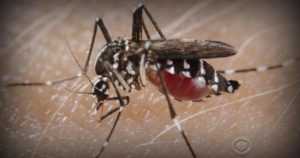Evidence of Zika virus reportedly found in tourist haven in Miami
Zika virus seems to be uncontrollable while spreading in other parts of Miami, Florida after it was transmitted to many people.
Aside from the area where Zika virus has first detected, reports show that it is now present in Miami Beach.

The Florida Department of Health confirmed Thursday that two additional people have contracted the virus locally in Miami-Dade County, bringing the number of local transmissions of the Zika virus in Florida to 35.
A spokeswoman for Florida’s health department, Mara Gambineri, said the department believes active transmissions are still only occurring in a small area in the Wynwood area but acknowledged two new Zika cases outside that area.
“If investigations reveal additional areas of likely active transmission, the department will announce a defined area of concern,” she said in a statement.
The only specified zone in the U.S. was in the Wynwood neighborhood north of downtown Miami. However, non-travel related transmissions of Zika have been identified outside Wynwood.
Florida health officials have found evidence of local Zika virus transmission in Miami Beach, one of the world’s most popular tourist destinations, opening a new front in the fight against the mosquito-borne virus, according to a source familiar with the investigation.
Meanwhile, it has increased efforts to prevent the spread of Zika.
The new Zika transmission has been identified in Miami Beach and that officials will detail a new transmission zone within the city.
The report added that Miami Beach officials and code compliance officers were already at work inspecting for mosquito breeding sites.
Miami Beach Mayor Philip Levine told a press conference late on Thursday that state and federal health officials have yet to conclude the tourist hot spot is the latest area where Zika has been transmitted.
“We don’t know the exact link, one could be a tourist, one could be someone who may have worked on Miami Beach,” Levine told reporters. “If it was confirmed we’d be able to talk about that, but it’s not.”
A handful of Zika cases have been identified and health officials are deciding which area or areas to include in any updated travel guidance, the source said.
The virus, which has spread rapidly through the Americas since it was first detected in Brazil last year, can cause the rare birth defect microcephaly, marked by abnormally small heads and developmental problems.
